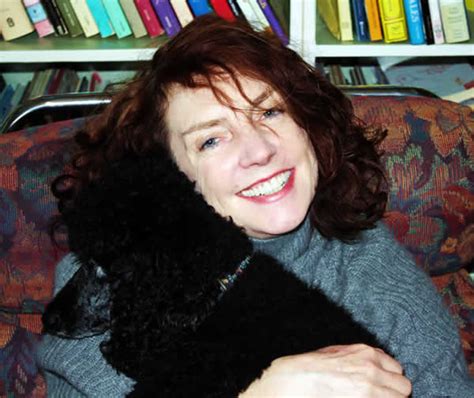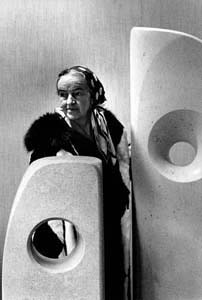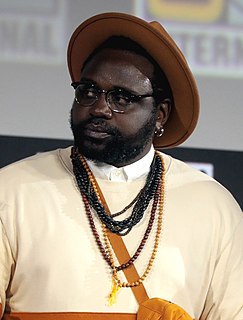A Quote by Franny Billingsley
It is true that I can trip over anything and nothing – a speck of dust, a patch of sunlight, an idea. I move through life like a person with one eye, through a landscape that looks flat, but is really tricked out with hidden depths and shallows. It didn’t use to be so, but no matter. I navigate the world well enough in my own way.
Related Quotes
A lot of mantras that I use in my daily life to get through - to move through the world in peace and harmony with myself - find their way into the music that I make. Many of the lines that people seem to be drawn to in my music really come from these mantras that I repeat to myself to try and move through the world in more thoughtful, comfortable way.
In this model, the sun is a very tiny speck of dust indeed-a speck less than a three-thousandth of an inch in diameter ... Think of the sun as something less than a speck of dust in a vast city, of the earth as less than a millionth part of such a speck of dust, and we have perhaps as vivid a picture as the mind can really grasp of the relation of our home in space to the rest of the universe.
Along the way, female filmmakers will have the feeling that they're not good enough. And that's really just a result of being "otherized" from the moment they're born. Keep an eye out for all those insecurities, and even expect them. Borrow white male privilege and just move through the world as if it was created for you. You have to kind of talk yourself into an imaginary space where the world is on your side and expects you to speak and wants you to speak. You have to create that space for yourself over and over again. Every hour sometimes.
She looks at me out of the side of her uncovered eye. "Chess, Zombie: defending yourself from the move that hasn't happened yet. Does it matter that he doesn't light up through our eyepieces? That he missed us when he could have taken us own? If two possibilities are equally probable but mutually exclusive, which one matters the most? Which one do you bet your life on?
All my early memories are of forms and shapes and textures. Moving through and over the West Riding landscape with my father in his car, the hills were sculptures; the roads defined the form. Above all, there was the sensation of moving physically over the contours of fullnessess and concavities, through hollows and over peaks - feeling, touching, seeing, through mind and hand and eye. This sensation has never left me. I, the sculptor, am the landscape. I am the form and the hollow, the thrust and the contour.
We say justly that the weak person is flat, for, like all flat substances, he does not stand in the direction of his strength, that is, on his edge, but affords a convenient surface to put upon. He slides all the way through life.... But the brave man is a perfect sphere, which cannot fall on its flat side and is equally strong every way.
The autobiographer looks at life through the lens of his or her own life and really uses herself or himself as the jumping-off place to examine the social mores and the economic and political climates. In a way, the autobiography becomes history as well as the story of one person, for it becomes the story of a family or the story of the state or nation.
Through compassion it is possible to recognize that the craving for love that people feel resides also in our own hearts, that the cruelty the world knows all too well is also rooted in our own impulses. Through compassion we also sense our hope for forgiveness in our friends' eyes and our hatred in their bitter mouths. When they kill, we know that we could have done it; when they give life, we know that we can do the same. For a compassionate person nothing human is alien: no joy and no sorrow, no way of living and no way of dying.
Everything that falls upon the eye is apparition, a sheet dropped over the world's true workings. The nerves and the brain are tricked, and one is left with dreams that these specters loose their hands from ours and walk away, the curve of the back and the swing of the coat so familiar as to imply that they should be permanent fixtures of the world, when in fact nothing is more perishable.
The world of men has forgotten the joys of silence, the peace of solitude, which is necessary, to some extent, for the fullness of human living. Man cannot be happy for long unless he is in contact with the springs of spiritual life which are hidden in the depths of his own soul. If man is exiled constantly from his own home, locked out of his spiritual solitude, he ceases to be a true person.


































